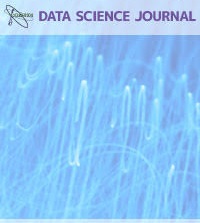The present message is a reminder that all presenters at SciDataCon are invited to submit a paper to the Data Science Journal http://datascience.codata.org/ to be considered as part of a high-profile special collection of papers from the conference.
Please note the following:
The deadline for submissions to be part of the SciDataCon 2016 special collection has been extended to 31 October.
Submissions should be made at http://datascience.codata.org/
- The submission should be a full paper (please see instructions on the Data Science Journal website ), not the abstract submitted for SciDataCon.
- Even though an abstract was accepted for SciDataCon, the full paper submitted to the Data Science Journal will be peer-reviewed to ensure quality.
- Given the number of papers expected we are unable to waive the Article Processing Charge (APC) for all papers, however the Data Science Journal is very competitive and has a progressive waiver policy for those unable to pay the APC: http://datascience.codata.org/about/submissions/
Other Deadlines for Data Science Journal Collections
This Special Issue aims to explore how, why, and to what end scientists in
 developing countries, and particularly those in sub-Sahara Africa, share and re-use data, and whether these activities differ from the priorities, practices, and policies associated with research in other conditions. We seek to attract papers that capture the challenges of conducting research in low-resourced environments and the innovative ways in which scientists overcome these challenges and produce/disseminate/use data (whether in digital or other formats). We would be happy to discuss possible contributions with prospective authors over email.
developing countries, and particularly those in sub-Sahara Africa, share and re-use data, and whether these activities differ from the priorities, practices, and policies associated with research in other conditions. We seek to attract papers that capture the challenges of conducting research in low-resourced environments and the innovative ways in which scientists overcome these challenges and produce/disseminate/use data (whether in digital or other formats). We would be happy to discuss possible contributions with prospective authors over email.Call for Papers: Special Issue: 20 Years Persistent Identifiers
Persistent identifiers (PID) for scholarly resources have been around now for more than 20 years. Since the initial launch of the Handle.net we have seen a proliferation of PID into many use cases. Some PID systems have become established parts of the science information infrastructure, in other areas we are seeing work in progress, and new use cases being proposed. In addition to the PID use cases a number of critical questions arise. These include:
- What progress has been made – what works and what lessons have we learned?
- Are there key gaps in the ways that research outputs are structured, accredited and exposed?
- How are issues of interoperability between different PID systems to be handled, and what are the implications of doing so?
- How do we ensure trust in PIDs and their long-term sustainability? What is the relationship between PIDs, metrics and data quality?
- What are the roles of the various stakeholders, e.g. funders, publishers, researchers, learned societies, repository managers?
Areas of discussion in this issue include:
- Usage of PIDs within and across disciplines (e.g. earth sciences, life sciences, medicine, digital humanities, cultural heritage)
- New use cases (e.g. provenance, dynamic data, fine-grained access, reference, credit, metrics, quality, standards)
- Communities of practice and governance around PID systems
- New forms of scholarly output, communication, linked data and business models
